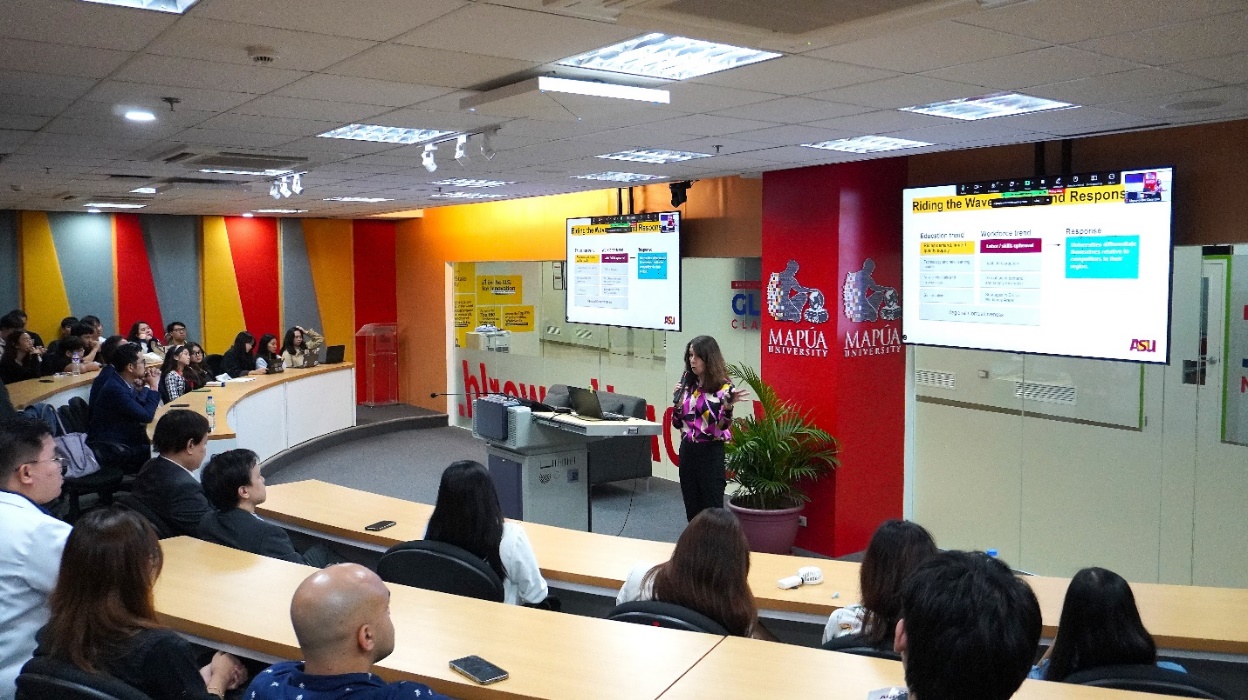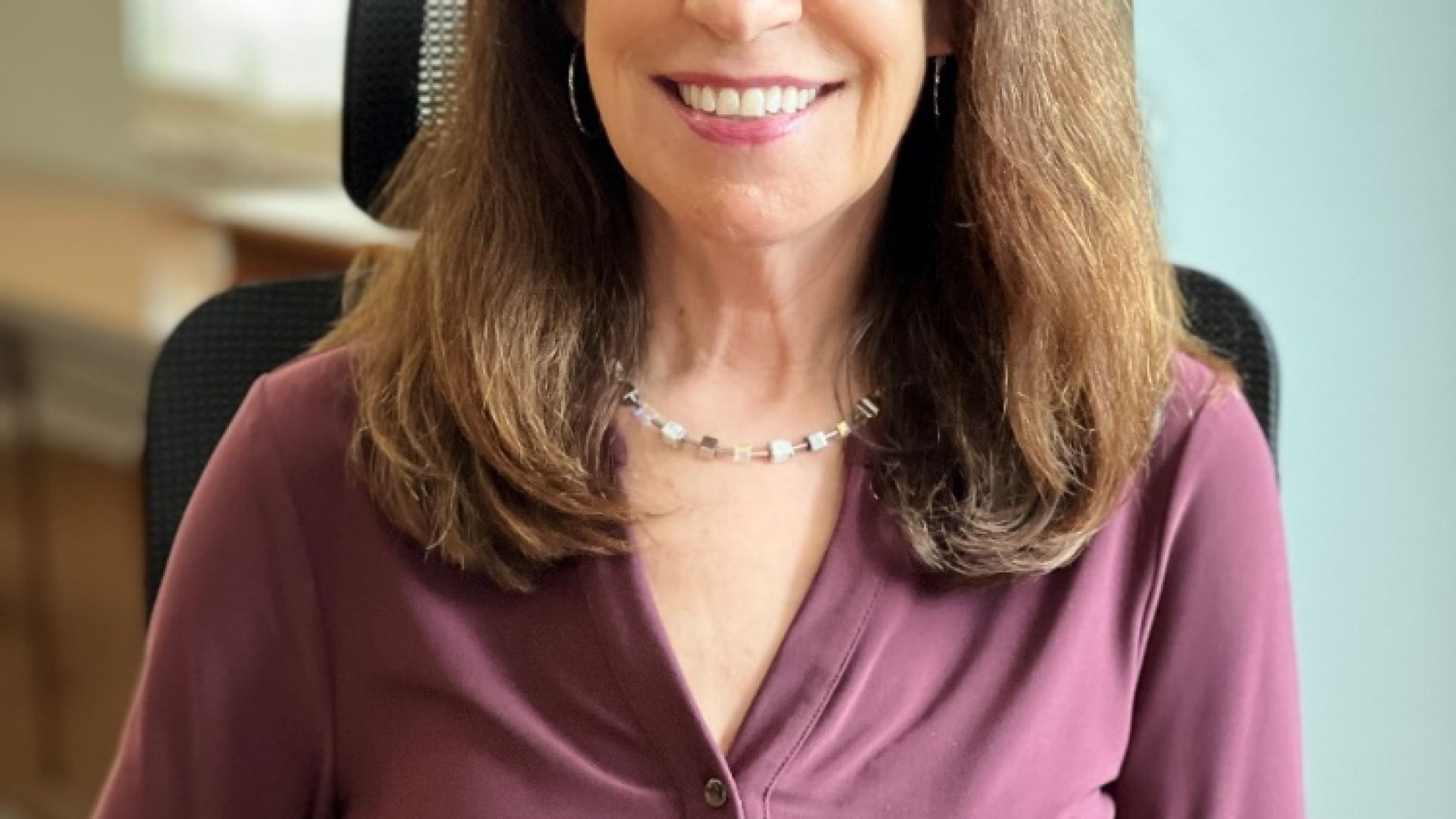Filipinos are increasingly demonstrating a strong willingness to embrace opportunities for global learning.
According to the Open Doors 2024 Report on International Educational Exchange, over 4,000 Filipinos decided to pursue their higher education in the United States in the 2023-2024 academic year, up by almost 17 percent compared to the previous year.
The growth suggests not only of Filipinos’ interest in global learning but also reveals the strong educational ties between the Philippines and the United States. Parallel to this growth is an opportunity that allows a student to benefit from global learning without leaving home throughtransnational education. Transnational education (TNE), as defined by UNESCO in International Higher Education (IHE), refers to higher education programs where students are based in one country while the institution offering the program is located in another.
In collaboration with Arizona State University, Mapúa University’s E.T. Yuchengco School of Business, School of Health Sciences, School of Nursing, and School of Medicine are enhancing access for Filipino students to high-quality international education. This initiative emphasizes global immersion, real-world experiential learning, enhanced learning through advanced and immersive facilities, and the mastery of digital skills.
The opportunity to engage in transnational education is pertinent not only to students but also to their parents. In today’s landscape, where the younger generation often makes informed choices independently, Filipino parents remain significantly involved in determining the educational paths of their children. The decision-making process regarding higher education is a critical aspect of familial culture in the Philippines, highlighting the importance of collaboration between parents and students in navigating these essential choices.

 Julia Rosen, Vice President for Global Academic Initiatives at Arizona State University, considers the Mapúa University collaboration with ASU on business and health sciences programs as a reference point for transnational education that can be an efficient way for students to broaden their career horizons.
Julia Rosen, Vice President for Global Academic Initiatives at Arizona State University, considers the Mapúa University collaboration with ASU on business and health sciences programs as a reference point for transnational education that can be an efficient way for students to broaden their career horizons.
“The ASU and Mapúa University collaboration [on business and health sciences] can be a reference point for transnational education,” Julia Rosen, Vice President for Global Academic Initiatives at Arizona State University,says.
A key highlight of the collaboration is the introduction of degree pathway programs between the E.T. Yuchengco School of Business at Mapúa University and Arizona State University (ASU). This initiative enables students to earn degrees from both Mapúa University in the Philippines and ASU. Mapúa students have the option to complete their studies online or attend classes on the ASU campus in the United States.
“Through our degree pathway programs [with the E.T. Yuchengco School of Business at Mapúa University],students can earn two degrees from two outstanding institutions in just four years. It’s an efficient way for students to open their career horizons, whether they stay in the Philippines, whether they work in America or anywhere else,” Julia Rosen, Vice President for Global Academic Initiatives at Arizona State University, explains.
“America is still a hub, if not THE hub, for technology, innovation and global trends. ASU, within that environment, is the most innovative public university. So I would say, in terms of preparing your child for long-term success, it would make sense to send them to the hub of innovation in America and I believe that is a distinguishing characteristic that other models might not be able to replicate,” Rosen adds.
The ASU executive also thinks that it is advantageous for parents and students alike to consider transnational education, especially its pathway programs, it offers in terms of financial accessibility and high quality of learning.
In addition, the collaboration also offers Optional Practical Training (OPT). Through OPT, students have the opportunities to gain up to three years of U.S. work experience which enables them to have real-world experiences overseas, enhances their employability and widens their professional network locally and globally.
The institution recognizes that pathway programs can be expensive but it is finding ways to provide offerings, even through short-term experiences such as ASU Summer Immersion, so that they remain accessible to students.
Overall, the future graduates of Mapúa University business and health sciences programs benefit from a collaboration with ASU as they will certainly acquire global and innovative skills needed for the modern industries and workplaces.
“By the time our students graduate, they would have been exposed to applied projects. They would have understood how to work in teams and work with people that come from different disciplines. They have curriculum that is based on real world challenges—all of that collectively might be called soft skills and that is the competitive advantage,” Rosen declares.
“Building a global university network grounded in providing access to students to unparalleled global opportunities, this whole collaboration—at least to my knowledge—is unique in the global marketplace. Because what we’re doing—all these different ways in which ASU and Mapúa are working together—is also replicated with 29 other universities [across the world]. And then Mapúa also is working directly with universities in Malaysia, in Mexico, in Ecuador and others so Mapúa is being internationalized in addition to the ASU connection by its membership in the network. To my knowledge, no one else is building a network of this scale and scope. Again, [this is] grounded in the fundamental values of providing new global education opportunities for students, and also transforming the regions where the students live,” the ASU executive concludes highlighting the advantages of the transnational education provided by Mapúa University E.T. Yuchengco School of Business, School of Health Sciences, School of Nursing, and School of Medicine in collaboration with ASU.




